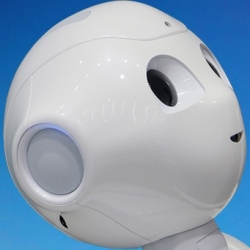
OpenAI just received a package that took $2 billion to develop: NVIDIA CEO Jen-Hsun Huang just delivered the first DGX-1 supercomputer, which is dedicated to “advance AI in the way that is most likely to benefit humanity as a whole, unconstrained by a need to generate financial return.”
The “AI supercomputer in a box” is packed with 170 teraflops of computing power, that’s equivalent to 250 conventional servers. NVIDIA says it’s a very fitting match: “The world’s leading non-profit artificial intelligence research team needs the world’s fastest AI system.”
“I thought it was incredibly appropriate that the world’s first supercomputer dedicated to artificial intelligence would go to the laboratory that was dedicated to open artificial intelligence,” Huang added.
The supercomputer will tackle the most difficult challenges facing the artificial intelligence industy…by reading through Reddit forums. And apparently, Reddit’s size was not a hindrance.
In fact, the site’s size is the main reason why the online community was specifically chosen as DGX-1’s training ground.
“Deep learning is a very special class of models because as you scale up, they always work better,” says OpenAI researcher Andrej Karpathy.
The nearly two billion Reddit comments will be processed by DGX-1 in months instead of years, as the $129,000 desktop-sized box contains eight NVIDIA Tesla P100 GPUs (graphic processing units), 7 terabytes of SSD storage, and two Xeon processors, apart from the aforementioned 170 teraflops of performance.
DGX-1 will take on Reddit to learn faster and to chat more accurately. “You can take a large amount of data that would help people talk to each other on the internet, and you can train, basically, a chatbot, but you can do it in a way that the computer learns how language works and how people interact,” Karpathy said.
The supercomputer is also equipped to make things easier from the developers at OpenAI. “We won’t need to write any new code, we’ll take our existing code and we’ll just increase the size of the model,” says OpenAI scientist Ilya Sutskever. “And we’ll get much better results than we have right now.”
